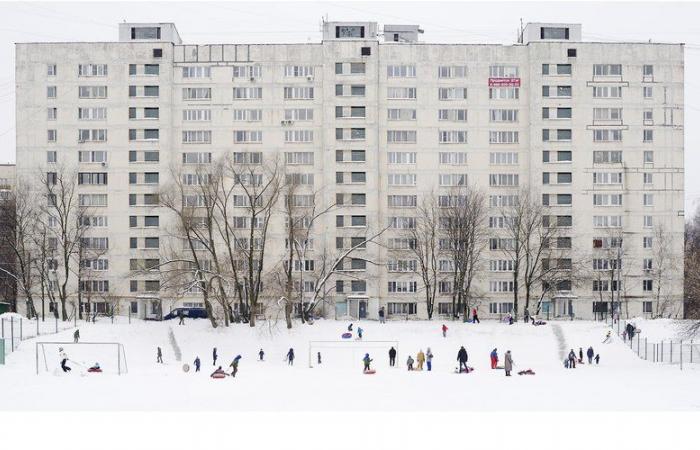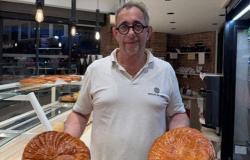
the essential
Snowy towns and industrial wastelands allow photographer Alexander Gronsky to show a harsh and poetic image of Russia over the last twenty years in the temporary gallery of the Water Tower.
The outside temperature in Toulouse allows you to immediately enter the icy atmosphere of Alexander Gronsky. Born in Tallinn, the current Estonian capital, in 1980, the photographer lives in Moscow where he travels with his lens the immensity of a city deeply marked by the monotony of Soviet architecture.
“The spaces that I photograph are landscapes that cannot be erased,” comments the artist. “Those whose memory must be kept. The question is not why I show these places, but how I show them.” Alexander Gronsky chose to show a large part of them under the snow. A white coat that covers the ground and roofs and on which children play and parents move among monotonous and inhospitable buildings. Sometimes, the trouble no longer comes from the architectural similarities but from the characters who live and move in the photographed worlds. “I’m trying to raise the question of rebellion,” Gronsky adds. “Some individuals take the same direction, others try to escape.”
Also read:
Museum, Slaughterhouses, Quai des savoirs, Water tower… The exhibitions they have in store for us in 2025 in Toulouse
A committed photographer
A committed photographer, he uses few words but creates images of resistance even if at first glance, the aesthetic is obvious. “He loves and uses beauty to denounce what is shocking,” explains Adélie de Ipanema, director of Galerie Polka, which represents the artist in France, present in Toulouse for the opening. “At the time of the invasion of Ukraine, he denounced the war and found himself in prison. His photos give the impression of calm, yet he is not a peaceful person. Born during the USSR , he lived between two lands and he feels stateless. In his photos, the snow hides the scars.
-A trompe-l’oeil snow whose dazzling whiteness and the colorful characters who tread it give, from a distance, the impression of being in front of a naive painting. And the closer you get, the more details appear and make your photos realistic.
Christian Caujolle’s last exhibition
Twenty-one photos, nineteen taken in Russia and two in China, are exhibited by the Château d’Eau in its temporary premises on the Allées Charles-de-Fitte, pending the reopening of the gallery at the end of the year, at foot of the Pont-Neuf.
Also read:
Toulouse: let’s go for the big transformation of the Château d’eau gallery, which is temporarily moving to Le Matou
“The work is progressing well and the reopening is planned for the last quarter of the year,” assures Pierre Esplugas-Labattut, deputy mayor responsible, in particular, for museums and image. “This is the last exhibition prepared by Christian Caujolle whose mandate as artistic advisor ended in December 2024. We are considering a new governance of the Château d’Eau gallery which could be rotating and which will only begin only when it reopens.





